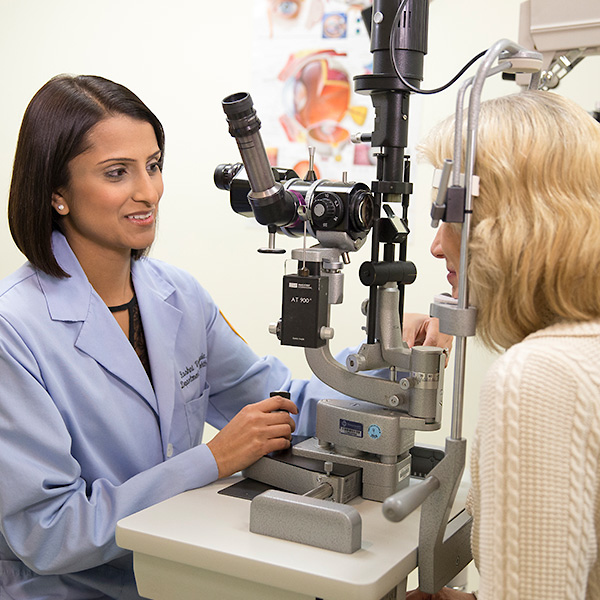Macular Degeneration
Overview and Facts about Macular Degeneration
Macular degeneration is an ophthalmological condition that results when a part of your retina known as the macula deteriorates. The retina, located at the back of the eye, helps focus your vision.
In most cases, aging is the cause of macular degeneration. Age-related Macular Degeneration is the most common cause of vision loss in older adults.
Signs and Symptoms of Macular Degeneration
Macular degeneration often causes a gradual deterioration of your central vision. Over time, you may develop a blind spot in the center of your vision.
Common symptoms of macular degeneration include:
- Blurry vision
- Dim vision
- Dark spots in your vision
- Changes in color perception
People with macular degeneration may find it more difficult to perform certain tasks. You might struggle with any of the following:
- Reading
- Driving
- Recognizing faces or pictures
- Using computers, tablets or smartphones
Report any changes to your vision or new vision problems to your doctor.
Causes and Risk Factors of Macular Degeneration
The two types of macular degeneration are known as “wet-type” and “dry-type”.
Dry-type macular degeneration can develop when the macular tissue becomes thinner or weaker. Small deposits may also appear in the macula and can further obstruct your vision.
Wet-type macular degeneration is the result of abnormal growth of blood vessels under the macula. Overgrowth in these blood vessels can cause blood or other fluids to seep into the retina. Wet-type macular degeneration is the more advanced form of this disease.
Aging often causes macular degeneration. Women are more likely to develop the condition than men. You might also be more likely to develop the condition if it runs in your family.
Other risk factors include:
- High blood pressure
- High cholesterol
- Smoking
- Obesity
- Light-colored skin
- Light-colored eyes
Tests and Diagnosis of Macular Degeneration
Macular degeneration is often diagnosed during a routine eye exam. During an exam, your doctor will often dilate your pupils to examine your retinas. Vision tests can help determine whether your eyesight is blurry or distorted.
Your doctor may also recommend an angiography. During this procedure, a special dye is injected into your veins. As the dye passes through the blood vessels in your eyes, your doctor takes photographs. This test can help reveal the existence of abnormal blood vessels in your eyes.
Treatment and Care for Macular Degeneration
There is no cure for macular degeneration, but some treatments may improve your vision. If you have wet-type macular degeneration, your doctor may prescribe or inject medications. Certain medications can block the growth of blood vessels in the eyes. Laser therapy or surgery may also help slow the progression of this disease.
Maintaining a healthy lifestyle can also help protect your vision. You can reduce your risk of developing many ophthalmological conditions by staying active and maintaining a healthy diet.
Some vitamins and nutritional supplements may also improve your eye health. Wearing sunglasses also protects your eyes from damaging ultraviolet rays.

Request an Appointment
Whether you are seeking routine eye care or have a specific vision issue, our team treats a wide range of eye diseases and conditions, including cataracts, glaucoma, macular degeneration and strabismus. Schedule an appointment today.
Schedule a Telehealth Appointment
